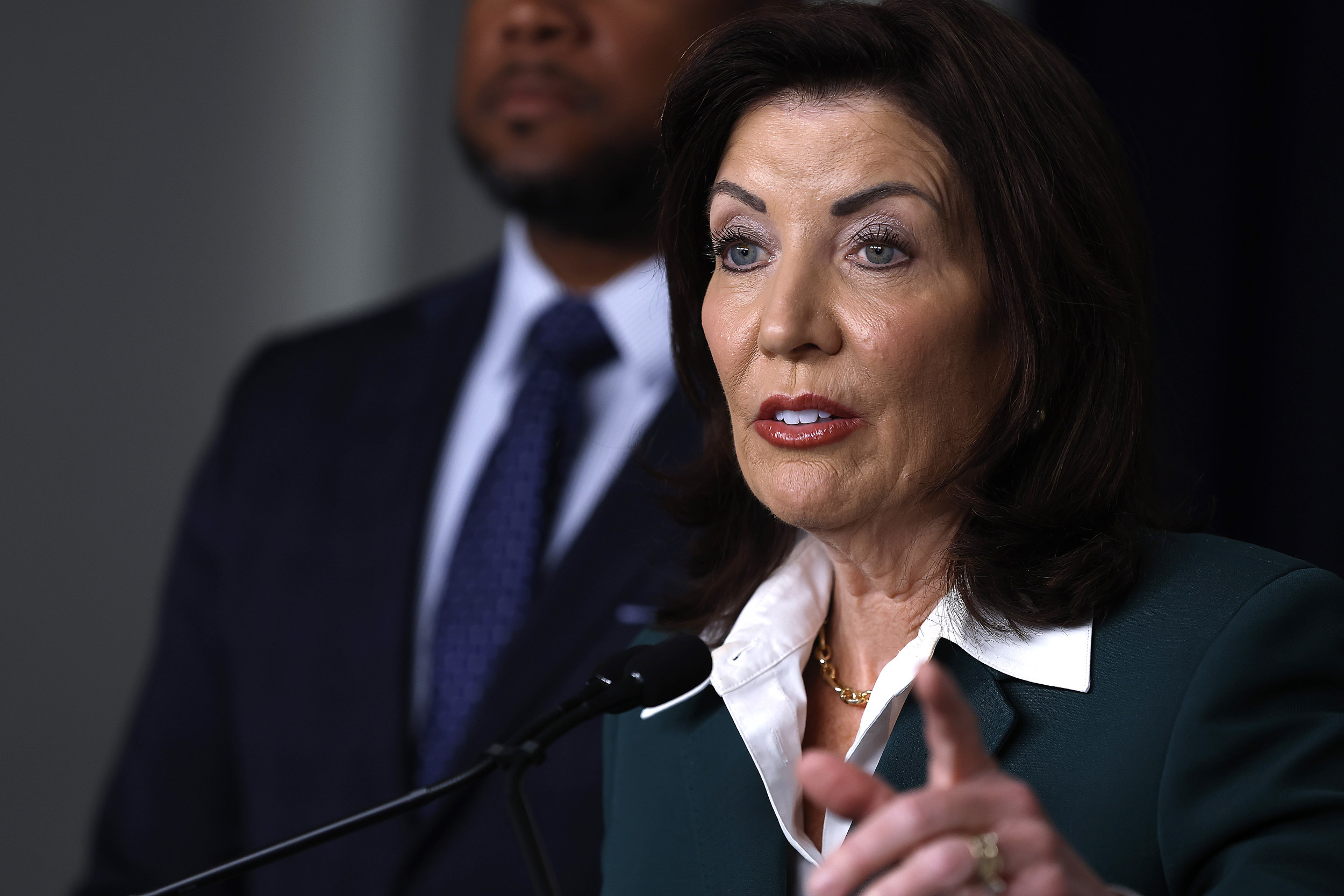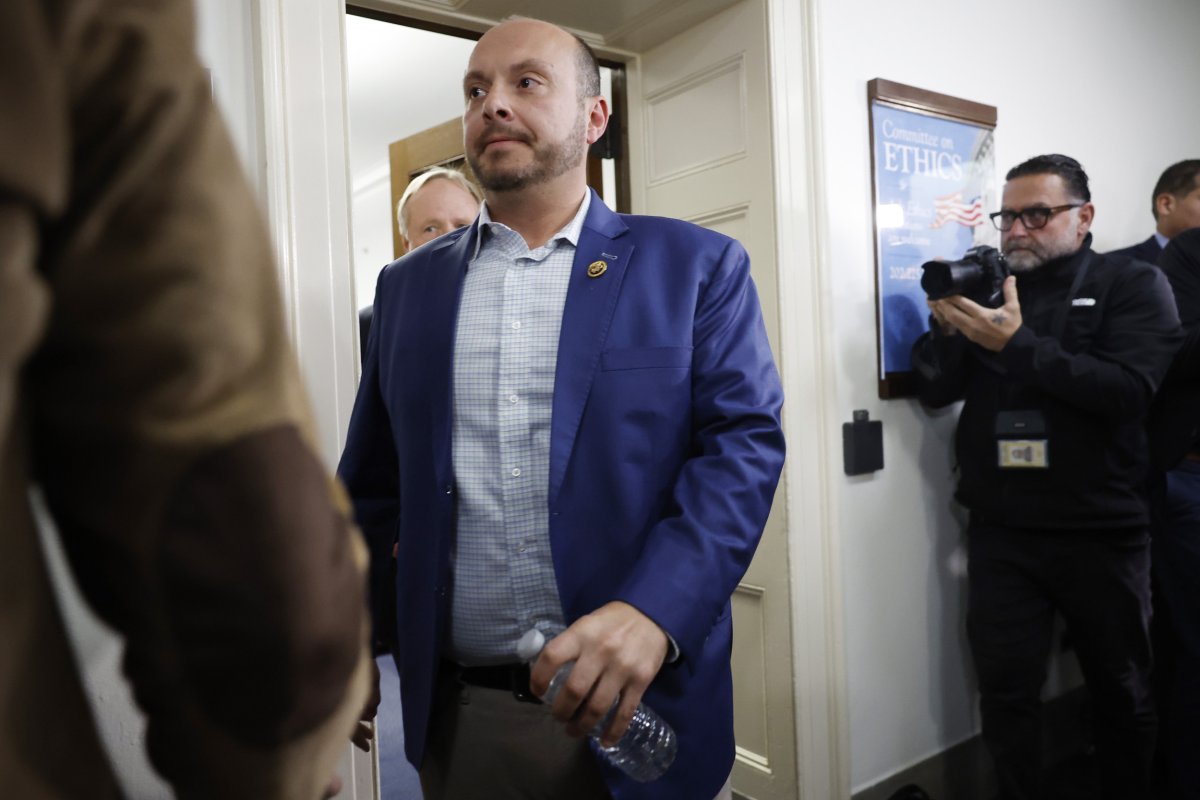
New York Governor Kathy Hochul on Friday issued a plea to Senate Republicans to reject the House-passed “big beautiful bill” because of concerns that it could severely impact the most vulnerable Americans as a result of changes and cuts to programs such as Medicaid and the Supplemental Nutrition Assistance Program (SNAP), the nation’s largest nutrition aid program.
Why It Matters
The House budget proposal, which is the centerpiece of President Donald Trump‘s economic agenda nicknamed “One Big Beautiful Bill,” aims to trim federal spending while offering significant tax cuts. The bill calls for hundreds of billions of dollars in Medicaid reductions, expanded work requirements for health and nutrition programs, and cost shifts to states.
With nearly 1.5 million New Yorkers potentially losing health coverage, safety net hospital closures on the horizon and millions at risk of increased food insecurity, the bill’s fate in the Senate holds high stakes for New Yorkers and recipients of these services nationwide.
The bill advanced to the Senate after passing in the House 215-214, with two Republicans siding with Democrats in voting against the bill while two others didn’t vote at all and one voted “present.”

John Lamparski/Getty Images
What To Know
Among her various concerns, Hochul highlighted the restriction of health care access as a result of Medicaid and Affordable Care Act (ACA) cuts and the reduction in food security because of SNAP benefit cuts as the chief concerns among her many objections to the bill.
She also pointed to the risks to the “safety and reliability” of the state’s power grid and the significant challenges to education with cuts to the federal loan program and the reduction of Pell Grants.
“Taken together, these provisions represent a regressive shift that threatens to widen educational disparities, destabilize community colleges and minority-serving institutions and undermine national efforts to promote affordable higher education,” Hochul wrote.
New York’s seven GOP representatives turned their backs on their constituents by passing a budget that guts Medicaid and takes a sledgehammer to our health care system.
I’ve worked hard to expand health care access, and I’m not backing down now.https://t.co/ofH3h4KVcJ
— Kathy Hochul (@KathyHochul) June 2, 2025
Hochul also hit out at the decision to merely increase the State and Local Tax (SALT) cap rather than entirely scrap it. She said it hurts higher-income states that end up benefitting relatively less than smaller states across the country.
She criticized New York Republicans in the House who voted in support of Trump’s bill, saying they refused to “advocate for the best interests of their state.” Among the seven Republican representatives from New York, only Andrew Garbarino did not support the bill, choosing not to vote.
The bill would slash $13.5 billion annually from New York’s health care sector, primarily through reductions in Medicaid and Affordable Care Act marketplace funding, according to official state figures.
Nearly 1.5 million New Yorkers face the loss of health insurance, and rural and safety net hospitals may be forced to close as a result of the cuts.

Kevin Dietsch/Getty Images
The bill also seeks to shrink SNAP benefits by $267 billion over a decade, tightening eligibility and shifting more costs to states beginning in 2028. Nearly 3 million New Yorkers could see reduced food aid, and the administrative burden on the state could exceed $2.1 billion per year.
New requirements would mandate that parents of children age 7 and older work to maintain benefits, a significant change from the previous exemption for parents of children under 18.
These are also just some of the concerns a handful of Republican senators have raised as the chamber prepares to vote on the House-passed version of the bill.
Senators Susan Collins of Maine, Lisa Murkowski of Alaska and Josh Hawley of Missouri have voiced opposition to Medicaid cuts.
Other skeptical Republicans, such as Senator Rand Paul of Kentucky, have voiced concerns about economic aspects of the bill, including the potential to increase the country’s debt limit by $5 trillion, which also set off Elon Musk and inspired the tech mogul to initiate a war of words with the president on Thursday.
What People Are Saying
New York Governor Kathy Hochul, in a letter to Senate Republicans: “As Governor of New York, I am writing to you ahead of the Senate’s consideration of the House reconciliation legislative package to underscore the detrimental impact this bill would have on my state. If enacted, the proposed bill would gut New York’s healthcare system, strip families of crucial nutrition benefits, trigger billions in economic losses through the removal of clean energy tax credits, stagnate growth in education and critical technology sectors, and continue to unfairly tax hard-working New Yorkers by failing to fully repeal the SALT cap. Passage of this legislation would worsen the affordability crisis and inject further instability into an already fragile economy.
“If New York Republicans in the House refuse to advocate for the best interests of their state, I will. As Governor, I must stand up for middle-class New Yorkers who cannot afford the consequences of this budget. I urge you to reject the House proposal and instead work with Leader Schumer on a bipartisan reconciliation package that delivers for working families, invests in the future, and reflects the real needs of the people we serve.”
Senator Josh Hawley, a Missouri Republican, in an op-ed for The New York Times: “If Congress cuts funding for Medicaid benefits, Missouri workers and their children will lose their health care. And hospitals will close. It’s that simple. And that pattern will replicate in states across the country.”
House Minority Leader Hakeem Jeffries, a New York Democrat: [The bill is a] “reckless, regressive and reprehensible GOP tax scam.”
House Speaker Mike Johnson, on the passage of the bill: “Today, the House has passed generational, nation-shaping legislation that reduces spending, permanently lowers taxes for families and job creators, secures the border, unleashes American energy dominance, restores peace through strength, and makes government work more efficiently and effectively for all Americans.”
What Happens Next
The Senate is scheduled to debate the bill before July 4, aiming to meet that deadline at the president’s insistence despite having until the end of September to pass the bill. The final legislation is expected to reflect alterations from ongoing negotiations.




